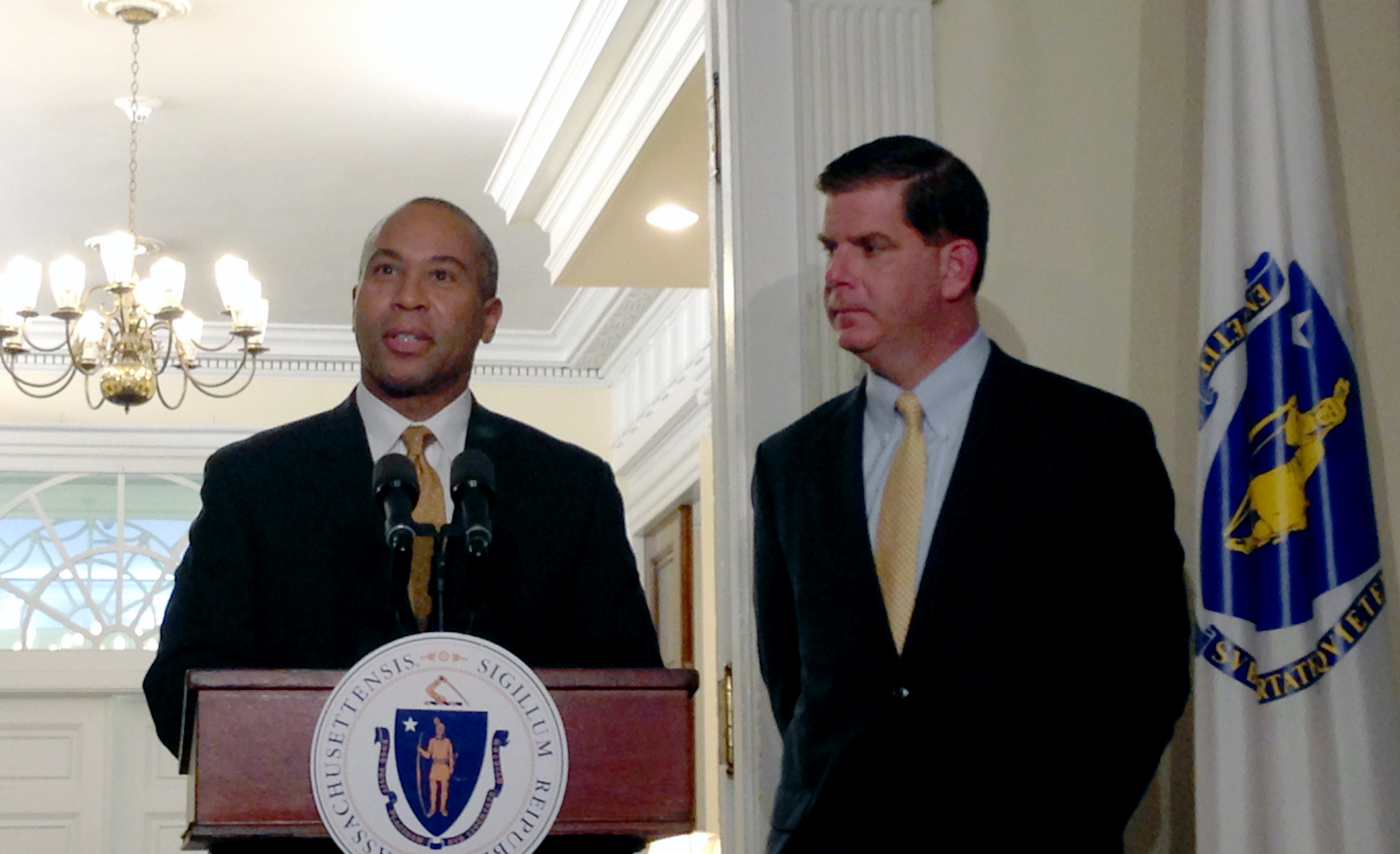
Gov. Deval Patrick and Boston mayor-elect Marty Walsh (Sarah Birnbaum photo).
Today at the State House, Boston mayor-elect Marty Walsh dropped by Gov. Deval Patrick’s office for a half-hour discussion. Afterward, both men were upbeat, with Patrick touting their “great conversation” and Walsh lauding the “great meeting” they’d just had.
Of course, Walsh and Patrick are hardly strangers. Walsh has been a state representative and a Patrick ally for years, so he knows firsthand how things get done on Beacon Hill.
If, as mayor, Walsh tries to change the power balance between Boston and Beacon Hill, that knowledge could be invaluable.
The state’s control over Boston’s affairs is both counterintuitive and considerable. Beacon Hill regulates a number of things other big cities simply assume they’ll handle on their own, including the number of liquor licenses available citywide and the taxes that are and aren’t levied.
It’s a strange system. But today, Walsh told me he hadn’t discussed those topics in his meeting with the governor — and he didn’t sound like he was in any rush to do so.
“I mean, it’s something we’ll talk about down the road,” Walsh said. “We didn’t talk about that today. It’s something we’re gonna definitely — we’ll have conversations as we move forward.”
The odd relationship between Beacon Hill and Boston dates back roughly a century, to an era when Yankee legislators — worried that Irish politicians like former Mayor James Michael Curley would run amok if they had total control of Boston’s affairs — created structural safeguards that allowed them to serve as a sort of government in exile.
Since then, Curley’s sundry successors have tried to bolster Boston’s autonomy. Kevin White got the state to absorb welfare costs previously born by cities and towns, for example. Ray Flynn got the state’s OK to tax hotel stays and jet fuel sold at Logan Airport. And among other things, Tom Menino won the right to tax meals.
In his meeting with the governor today, however, Walsh had a simpler request.
“The one thing I asked him for was more local aid,” Walsh said after his meeting with Patrick. “And he said — he smirked.” (At this, Patrick chuckled.)
Walsh’s local aid request wasn’t insignificant. In the past seven years, Boston has lost more than $150 million in local-aid funds.
But even if the mayor-elect gets what he wants on that front, it won’t change the fact that, from a municipal-governance perspective, Boston remains a bit like a bike with training wheels still attached.
It’s too early to say if Walsh cares. If he does, he’ll have plenty of time to try to change the status quo.

